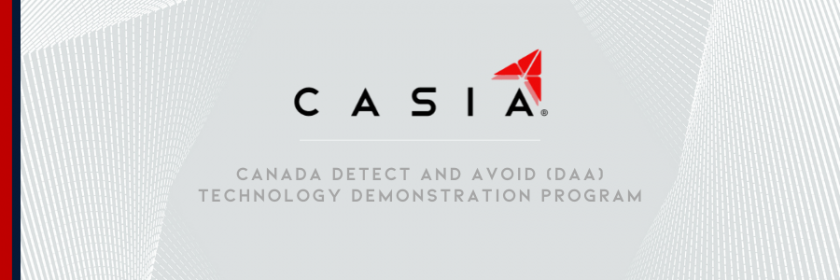Transport Canada has selected Iris Automation’s Casia’s collision avoidance system for commercial drones as part of Canada’s onboard Detect and Avoid (DAA) technology demonstration programme.
The DAA trials, conducted by the National Research Council (NRC) on behalf of Transport Canada, will evaluate the use of various types of DAA technologies to inform future Remotely Piloted Aircraft Systems (RPAS) regulations and standards.
Casia systems use computer vision and machine learning technology to detect unanticipated aircraft encounters and take corrective action to avoid a potential mid-air collision. For the trials, the Casia system will be integrated on a helicopter serving as a surrogate RPAS and flight tested against various “intruder” trajectories flown by other NRC aircraft. These real-world encounter scenarios simulate the kinds of encounters that commercial drones face while operating beyond visual line of sight (BVLOS), such as when conducting remote medical supply delivery, search/rescue, and precision agriculture monitoring.
Iris Automation CEO Jon Damush said: “Transport Canada continues to take a leading role in establishing the best practices needed for safe unpiloted flights for commercial drones. With so much potential for commercial drone operations in Canadian airspace, Transport Canada understands the opportunity as well as the need for regulations required to integrate RPAS successfully into the airspace environment.”
Iris Automation also participates in the US Federal Aviation Administration’s ASSURE and BEYOND programmes to advance complex BVLOS UAS operations in the US National Airspace System
For more information visit:




